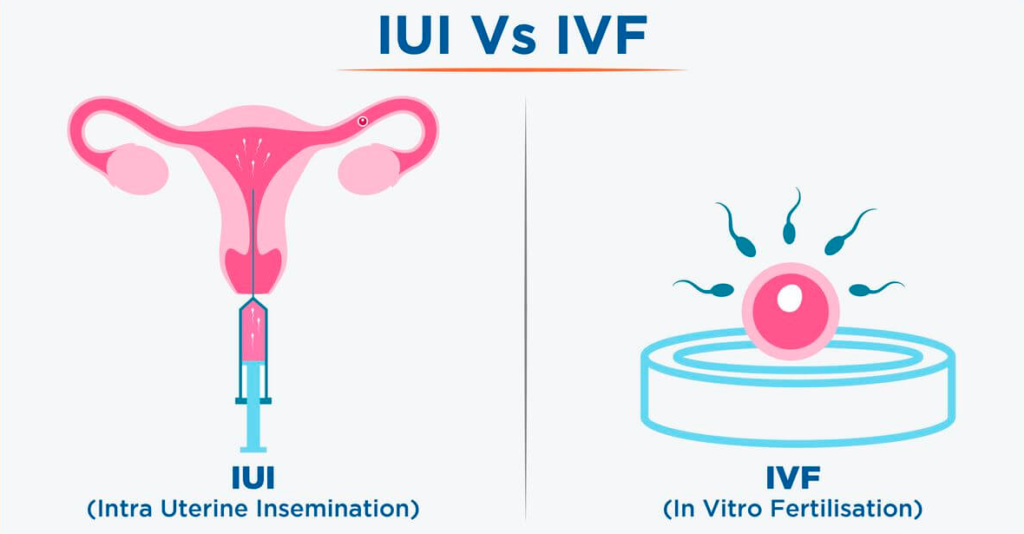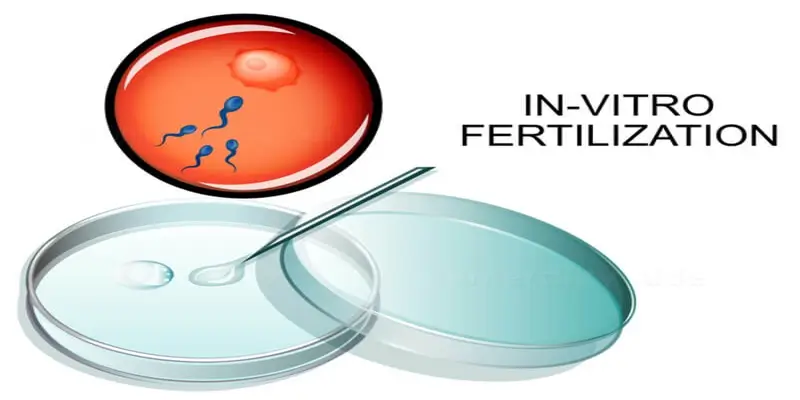IUI Vs IVF
Which Treatment Should You Choose?

Dr. Sushitra Thangjam
Fertility Specialist
Infertility is a disease of the reproductive system and is defined by the failure to achieve a clinical pregnancy after more than or equal to 12 months of regular unprotected intercourse. According to a health survey, 48.5 million couples are suffering from infertility worldwide. Among women 20-44 years, 1.9% had primary infertility and 10.5% had secondary infertility. Know more about infertility here

Worldwide, the two most common fertility treatment options are:
Even though these procedures have been used successfully for many decades, couples are often confused about the two and unaware of the difference between them. Both fertility treatments are used to achieve the same goal (a healthy baby), the processes are quite different.
IUI (Intrauterine Insemination)

IUI is a good starting point for a couple facing issues involving ovulatory dysfunction and unexplained infertility. For effective IUI, the woman should have at least one good fallopian tube, good egg quality and the male partner should have optimum semen parameters.
The IUI process is often done in conjunction with taking fertility medications like letrozole/ clomiphene citrate/ gonadotropins to stimulate the ovary to produce one/ two eggs. The process is monitored by USG (follicular study) to see for ovulation and to schedule for insemination of sperm.
In IUI, sperm from the male partner or donor sperm is collected, washed, and then good motile sperm are carefully placed directly via a catheter into a uterus. This means the sperm has to travel a lesser distance, thus increasing the chances of conception. It is a quick and relatively painless procedure.
IVF (In Vitro Fertilization)

IVF was introduced 30 years ago, since then millions of children have been born successfully. IVF is a term used to describe a procedure where fertilization occurs outside the uterus.
This is a process involving egg stimulation (ovarian stimulation), egg retrieval, fertilization in the laboratory, and then the transfer of the embryo to the uterus.
Click here to see the Complete IVF Process
For a successful IUI/ IVF – choosing a good candidate is a must.
For choosing good candidate for IUI :-
- Ovulatory factor infertility, eg. PCOS.
- Mild male factor infertility.
- Ejaculatory dysfunction.
- Cervical factor infertility.
- Unexplained infertility.
- Sperm allergy.
- Single and lesbian women with needing donor sperm.
Candidate not fit for IUI :-
- Moderate to severe endometriosis or other uterine abnormalities.
- Bilateral fallopian tube blocked.
- Poor semen report.
- Pelvic infection.
Good candidates for IVF :-
- Fallopian tube damage/ blockage.
- H/O tubal ligation.
- Semen abnormalities.
- Genetic disorders.
- Unexplained infertility
- Endometriosis: Stage III and IV
- For women whose age or ovarian reserve may be a concern.
- Lesbian women looking to be both involved in the creation of their child via reciprocal IVF.
- Surrogacy.
Choice between IUI & IVF
The choice depends on the underlying fertility problems of the patient.
If you choose for IUI – at least 3 – 4 cycles have to be done and if it is not successful, we can go ahead with advanced procedure IVF.
IUI Vs IVF – The cost factor
IUI is much cost-effective than IVF and is a viable solution for infertile couples but at times a number of cycles would be required before a positive result is attained.
IUI Vs IVF – Success rate
Success Rate is dependent upon many variables such as age, reasons for infertility, and medications.
As a whole IUI has a pregnancy rate of around 15 – 20 % for the ideal candidates and IVF has a pregnancy rate of around 50- 60%.


